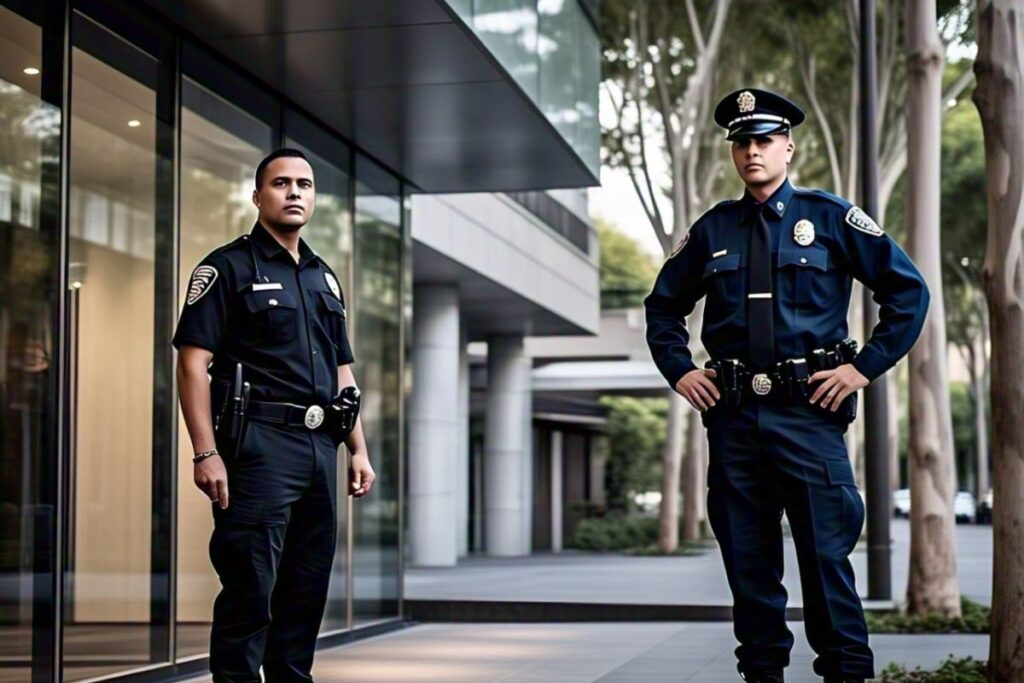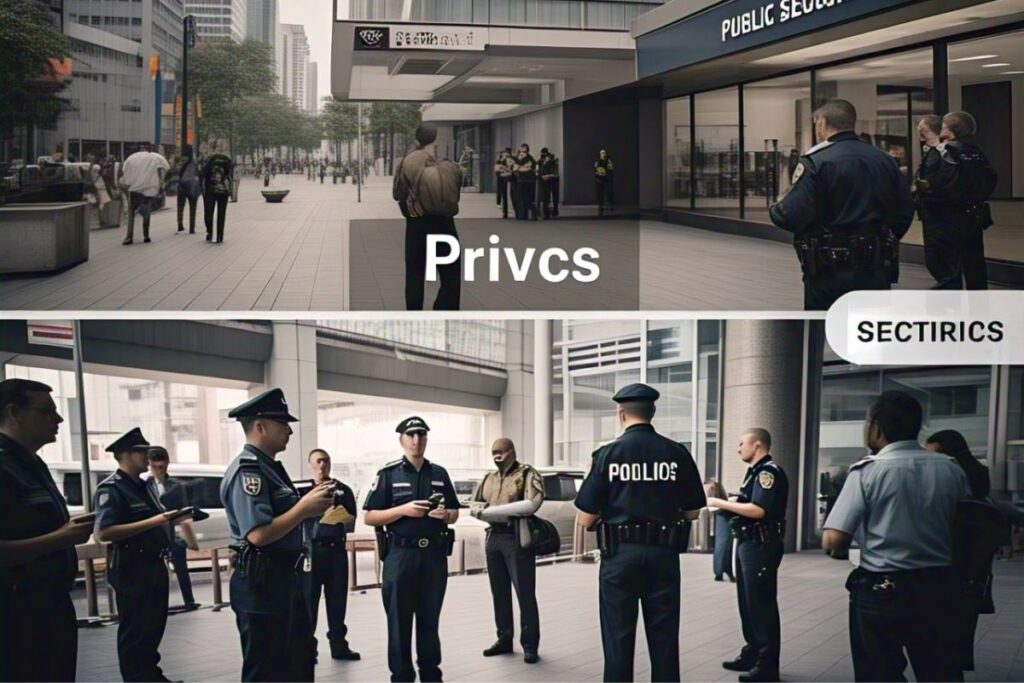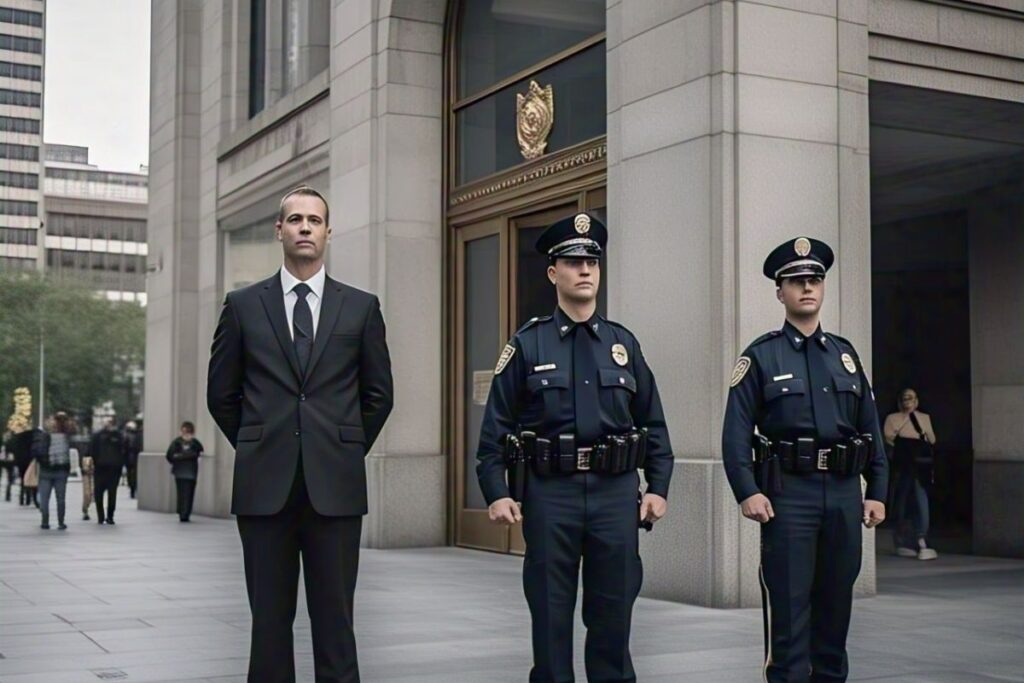Private vs. Public Security: A Detailed Comparison
The need for safety and protection is a universal requirement, but how that need is met differs depending on the situation and the resources available. Private and public security services represent two different approaches to ensuring safety, both playing critical roles in society. However, they have distinct differences in authority, regulation, objectives, and scope. This article will explore the nuanced distinctions between private and public security, delving into their unique roles, how they operate, and what sets them apart.
Understanding Private Security
Private security refers to security services provided by private entities, typically for commercial or personal purposes. These security professionals are employed by private companies or individuals to protect assets, people, or property. Their tasks may include monitoring security systems, patrolling properties, managing access control, and ensuring the safety of specific individuals or events.
Private Security’s Scope and Flexibility
Private security operates under contracts tailored to the needs of the client. This allows for a high degree of flexibility, where security services are customized based on the specific risks and requirements of the entity being protected. From corporate settings like office buildings to personal protection for high-profile individuals, private security services can adapt to various environments and industries.

Types of Private Security
- Corporate Security: Security personnel hired to protect businesses and their employees.
- Personal Security (Bodyguards): Trained individuals who provide protection to individuals, especially those at risk.
- Private Patrol Services: Officers or teams responsible for guarding residential communities, shopping malls, or construction sites.
- Cybersecurity: Specialists who protect companies from digital threats such as hacking and data theft.
Client-Focused Approach
Private security companies prioritize the interests of their clients and tailor their services accordingly. Unlike public security agencies that serve a broader community, private security providers have the flexibility to offer specialized services for niche markets. For instance, they might provide armed guards for high-value assets, surveillance services for private estates, or even cybersecurity for protecting digital infrastructure.

Understanding Public Security
Public security, on the other hand, is managed and operated by the government. This includes law enforcement agencies such as the police, fire departments, and emergency medical services (EMS). The primary objective of public security is to ensure the safety of the general public by preventing and responding to crime, enforcing laws, and maintaining order.

The Role of Public Security in Society
Public security professionals have broader responsibilities compared to private security. Their mission is to protect public safety at large, uphold the law, and respond to emergencies. Public security officers are accountable to the government and the citizens they serve. This means they are bound by constitutional laws, public policies, and regulations that ensure fairness and transparency in their operations.
Types of Public Security Agencies
- Police Departments: The most recognized public security agency, responsible for enforcing laws, preventing crime, and investigating criminal activities.
- Fire Departments: Ensuring public safety by responding to fire emergencies and conducting rescue operations.
- Emergency Medical Services (EMS): Professionals who provide urgent medical care in emergencies, including during natural disasters or accidents.

Legal Authority and Enforcement Powers
Public security officers, especially law enforcement, have the legal authority to arrest, detain, and prosecute individuals. They can investigate crimes, search properties under judicial warrants, and enforce laws that maintain public order. Unlike private security officers, public law enforcement officers are required to follow strict procedures when dealing with offenders, ensuring due process and accountability.

Key Differences Between Private and Public Security
While both private and public security aim to protect individuals, property, and maintain order, they differ significantly in their approach, authority, and responsibilities. Let’s explore these key differences in detail.
Authority and Jurisdiction
Public Security
Public security officers, such as police officers, have statutory authority granted by the government. They have the legal right to enforce laws, conduct arrests, investigate criminal activities, and maintain public order. Their jurisdiction is typically bound to a geographical area, such as a city, county, or state, but it covers all aspects of public safety within that area.
Private Security
Private security personnel do not have the same legal authority as public law enforcement. Their powers are limited to what is outlined in their contracts with clients, and they typically cannot make arrests unless it is a citizen’s arrest or in response to an immediate threat. Private security officers can detain individuals until law enforcement arrives but are required to act within legal boundaries.
Accountability and Oversight
Public Security
Public security agencies operate under strict government oversight and are accountable to the public. They are required to adhere to state and federal laws, ensuring transparency in their operations. Misconduct by public security officers can lead to legal consequences, disciplinary actions, or public scrutiny.
Private Security
Private security companies, while regulated by local or federal authorities in some regions, have more flexible oversight. Their operations are guided by the needs of their clients and the terms of their contracts. However, they must still comply with national and regional laws, especially concerning the use of force and personal data protection. Some countries require private security firms to obtain licenses, ensuring that personnel are trained and equipped to handle security responsibilities.
Training and Regulation
Public Security
Public security officers, especially law enforcement, undergo extensive training that includes criminal law, use of firearms, crowd control, and emergency response. Their training is mandated by the state and can last for months, if not years, depending on the jurisdiction. Continuous education and re-certification are often required to ensure that public officers remain up-to-date on current laws and best practices.
Private Security
Training for private security personnel varies depending on the company and the services provided. While some security officers undergo rigorous training—particularly in high-risk areas like personal protection or cybersecurity—others may receive minimal instruction if their duties are limited to tasks such as monitoring CCTV systems or managing access control. In many regions, private security firms are required to meet licensing standards, but these standards often differ from public security training.
Focus and Mission
Public Security
The focus of public security is to serve and protect the general public. Their mission is broad, encompassing crime prevention, emergency response, law enforcement, and public order maintenance. Public security agencies work to ensure that every citizen is protected under the law, regardless of status or affiliation.
Private Security
Private security, however, has a more specialized mission that focuses on protecting specific clients, assets, or properties. Their services are usually preventive, with an emphasis on deterring theft, vandalism, or other potential threats to the client. Private security companies can also provide specialized services, such as securing events, personal protection for celebrities, or safeguarding sensitive information.

Collaborative Roles of Private and Public Security
Despite their differences, private and public security often collaborate to ensure comprehensive protection. This cooperation can take various forms:
- Public Events: During large events such as concerts, sports games, or festivals, private security may manage internal security while public law enforcement handles external threats and enforces laws.
- Corporate Investigations: Private security firms may assist companies in investigating internal theft or fraud, but if a crime is detected, the case is handed over to public law enforcement for prosecution.
- Emergency Situations: In times of crisis, private security can act as a first response until public emergency services arrive.

The Future of Private and Public Security
With the rise of new technologies, such as artificial intelligence (AI), drones, and advanced surveillance systems, both private and public security are evolving. Private security firms are increasingly investing in cutting-edge technology to protect assets and information, while public security agencies are leveraging technology to improve crime detection and response times.
Additionally, as cybercrime becomes a growing threat, the lines between private and public security are blurring in the realm of digital protection. Public agencies may collaborate with private cybersecurity firms to combat global cyber threats, emphasizing the need for partnership between the two sectors.

